PC makers are rejoicing, the Zen 3 Ryzen 5000 series CPUs have been revealed and AMD seems to go live in early November with impressive improvements across the board. Although the price may have increased slightly, by 11-30% on Ryzen 5, 8, and 9, it seems worth the price of admission based on the potential performance improvement offered even by the new 6c / 12t Ryzen 5 5600X.
First of all, the biggest update is the introduction of unified CCXs (core complexes) that allow 8 CPU cores to share all 32MB of L3 cache simultaneously. Second, the architectural changes for Zen 3, in addition to AMD’s chipset design and the new CCXs, should allow for an IPC increase of about 19% over Zen 2 based on their internal testing.
Of course, their results will have to face real-world benchmarking after Zen 3 is available, but AMD has been on a streak of honesty and accuracy in their presentations for the past few years since they first broke the architecture news.
It is clear that they are very proud of their recent work and it has been proven time and again that they have every reason to be. We’re confident that by the time the builders unwrap their shiny new Zen 3 CPUs, AMD’s findings will be reliable. One final note, and possibly the most impressive attribute of Zen 3, is that while prices may have increased, the TDP for Zen 3 is equal to or less than Zen 2 Overall.
This means that if you’ve settled with a motherboard that can accept Zen 3 (any 500 series and most 400 series, as long as there is a proper BIOS update available), then you’re ready to plug in a Zen 3 processor as soon as possible be able to acquire one!
Zen 3 seems to confirm, once again, that AMD has its hooks in the industry and does not plan to let it go anytime soon. Not only have they managed to keep their promise of “true” improvements year after year, but they have long delivered on their promise of hardware compatibility by staying in the same socket (AM4 +) until Zen 3.
This makes our jobs a lot easier as the same components that were the top picks for Zen 2 will apply to Zen 3. Now get ready, here are the best motherboards to pair with the Ryzen 9 5900X for 2024.
Greatest Motherboards to Pair with the Ryzen 9 5900X
1. TUF Gaming X570-Plus – Our Recommendation
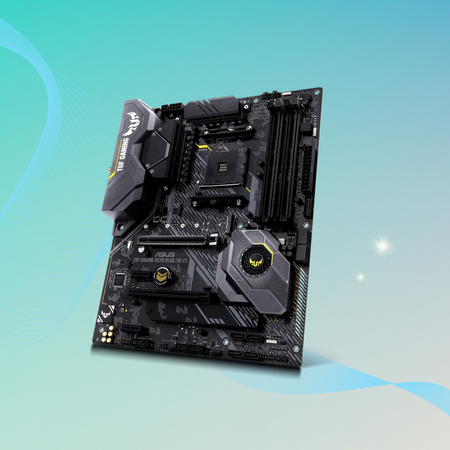
The Asus TUF Gaming X570-Plus (Wi-Fi) still represents one of the best price-performance ratios on the market for any mid-to-high-end Ryzen CPU, even for the new Ryzen 9 5900X.
With the AM4 plug maturing at this stage, the “cream has risen to the top,” so to speak, and you will almost certainly see many similar recommendations consistently over time.
Asus’ TUF Gaming series has proven to be a reliable choice for many different Intel and AMD chipsets over the years, including the X570, and this is why it remains our pick for almost all current chipsets.
With TUF Gaming X570-Plus (Wi-Fi) you get 50A power stages, a 14-phase VRM (12 + 2), support for up to 128GB of DDR4-4400MHz memory, 2 M.2 slots, Realtek 1G LAN + S1200A audio ALC CODEC, 3 USB 3.2 Gen 2 ports (1 is Type C) + 4 USB 3.2 Gen 1 ports and 8 SATA III 6Gb / sports.
For builders looking for the most complete motherboard under $ 200 to pair with any Ryzen CPU, the X570-Plus (Wi-Fi) is hard to pass up.
2. MSI MEG X570 Unify – Best Budget Motherboard
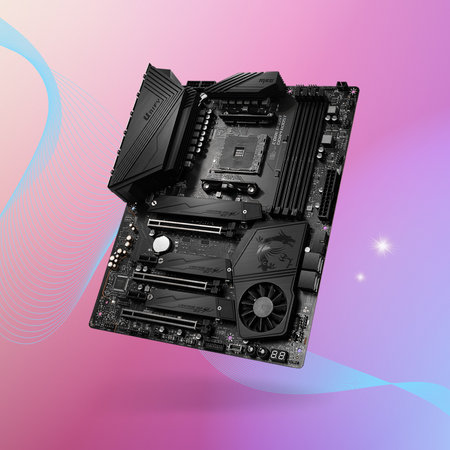
Next, our top pick for the 5900X overall: the MSI MEG X570 Unify. Considering the worrying early reports on many of MSI’s VRM temperatures for its X570 motherboards priced below the MEG X570 Ace, the X570 Unify is a world-class answer from a motherboard manufacturer.
With X570 Unify, MSI has shown that they are genuinely determined to improve in terms of overall product quality and their commitment to their user base.
The X570 Unify is universally praised, and rightly so, for being arguably the best “total package,” capable of handling any component you can throw at it, now including the 5900X.
The X570 Unify offers 60A Power Stages, a 15-phase VRM (12 + 2 + 1), support for up to 128GB of DDR4-5000MHz memory, 3 M.2 slots, Intel AX200 Wi-Fi 6 + Bluetooth 5.0, Realtek 2.5G LAN + ALC1220 Audio CODEC, 4x USB 3.2 Gen 2 (1 is Type-C) + 2x USB 3.2 Gen 1 + 2x USB 2.0 ports, 4x SATA III 6Gb / s ports, an integrated I / O shield, Clear CMOS + BIOS Flashback buttons, integrated power / reset buttons and a POST code read for $300.
If you are not looking for something smaller or cheaper, the X570 Unify is an extremely stylish and powerful motherboard for your new 5900X.
3. Gigabyte X570 Aorus Xtreme – Best Overclocking Motherboard
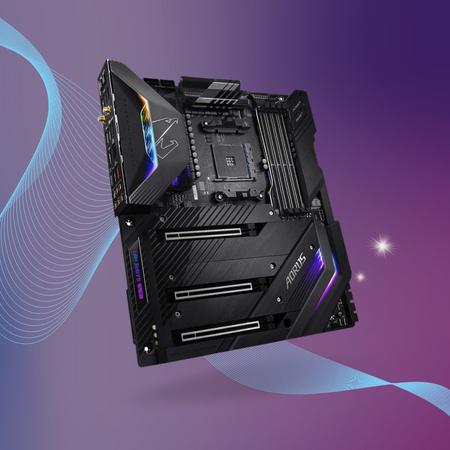
Given the $550 price tag of the 5900X, this time around we’ll be doing our best with our high-performance pick: the $700 Gigabyte X570 Aorus Xtreme.
Ryzen 9 processors are monstrous, with 12 cores / 24 threads on the 5900X, 16 cores / 32 threads on the 5950X, 105W TDP, and astonishing performance in gaming and productivity workloads, they are sure to be two of the best teams in the world consumer desk.
If you’re shopping for one of the best processors, you’re probably interested in the best motherboards too, and the X570 Aorus Xtreme is the king of VRM thermal performance, while also having the benefit of a passively cooled chipset!
The X570 Aorus Xtreme comes with 70A Power Stages, a direct 16-phase VRM (14 + 2), support for up to 128GB of DDR4-3600MHz memory, 3 M.2 slots (PCIe 4.0), AQUANTIA 10G LAN, Intel Gigabit LAN + AX200 Wi-Fi 6 + Bluetooth 5.0, Realtek ALC1220-VB Audio CODEC + ESS SABRE9218 DAC, 6x USB 3.2 Gen 2 (1 is Type-C) + 2x USB 3.2 Gen 1 + 4x USB 2.0 ports, 6x SATA III 6Gb / s , integrated power / reset buttons, Clear CMOS + Q-Flash buttons and a POST code readout.
Of course, we are well aware that a price of 700 euros may have made some of you laugh, and that is completely fair. If you’re like most PC enthusiasts and don’t have the money to put a hole in your pocket, you’ll want to take a look at the Asus ROG Crosshair VIII Hero (Wi-Fi). The Crosshair VIII has no passive cooling and typically ends up running a few degrees warmer than the X570 Aorus Xtreme. Still, it’s almost 50% cheaper at just $380 for identical features.
Also, while Asus can run “team” phases, they are not cheaply or inappropriately “duplicated” without the additional prerequisites and high-quality components.
Failing to add the necessary hardware to a mirrored VRM design is a highly inefficient (and potentially dangerous) way in which manufacturers occasionally try to “increase” phase counts to match better-designed VRM configurations. Asus has certainly been doing things right.
While both the Gigabyte X570 Aorus Xtreme and the MSI MEG X570 Godlike costs $700, the Asus Crosshair VIII Hero (Wi-Fi) easily competes in terms of clean power delivery and thermal performance at a vastly lower price.
If you’re not sweating the extra few degrees and still want one of the best AMD motherboards for enthusiasts, Crosshair VIII Hero (Wi-Fi) significantly reduces the impact on your wallet for the same quality and near-identical features.
4. Asus TUF Gaming B550M – Best for Video Editing
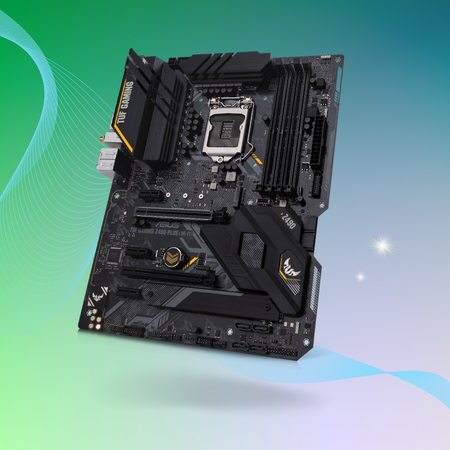
mATX, I’ll die on the hill that says it’s a criminally underrated form factor. Despite being so capable of providing top-notch VRM configurations, hardware compatibility, connectivity options, and overall design quality, motherboard builders and manufacturers seem to be a bit disinterested in mATX.
This disinterest, in addition to the huge rise in popularity of small form factor (SFF) mini-ITX, builds, leads to regularly scarce micro-motherboard options for AMD and Intel chipsets.
Fortunately, we have the $180 Asus TUF Gaming B550M-Plus (Wi-Fi) to make up for the general lack of high-end mATX motherboards we’ve seen, especially with the B450 and X570.
The TUF Gaming B550M-Plus (Wi-Fi) provides 50A power stages, a 10-phase (8 + 2) VRM, support for up to 128GB of DDR4-4600MHz memory, 2x M.2 slots (1x PCIe 4.0 x4), Intel AX200 Wi-Fi 6 + Bluetooth 5.1, Realtek 2.5G LAN + ALC S1200A Audio CODEC, 2x USB 3.2 Gen 2 (1 is Type-C) + 4x USB 3.2 Gen 1 + 2x USB 2.0 ports, 4x SATA III 6Gb / s ports, and BIOS Flashback.
If you’re interested in building a Ryzen mATX system, the TUF Gaming B550M-Plus (Wi-Fi) is your best bet, especially when it comes to VRM performance and rear I / O USB connectivity.
5. Asus ROG STRIX X570I – Best mini ITX Motherboard
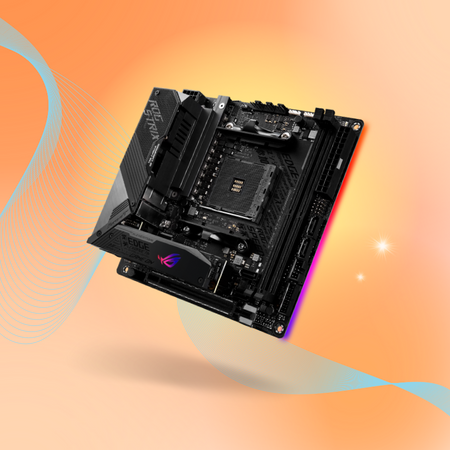
Considering the aforementioned interest in mini-ITX builds, with no end in sight, the Asus ROG STRIX X570-I Gaming is proof in the pudding that they will only continue to grow in popularity.
At $250, there is good reason for the uniform appearance of the X570-I Gaming as our recommendation for the best Ryzen mini-ITX motherboard; it is awful.
Of course, there are other great contenders for Ryzen mini-ITX motherboards (especially the B550), but if you pick a Ryzen 9 CPU for your next SFFPC, you’ll want the best, and the ROG STRIX X570- I deliver.
This little Asus board touts 70A Power Stages, a 10-phase (8 + 2) VRM with active cooling, support for up to 64GB of DDR4-4800MHz memory, 2x M.2 slots, Intel Gigabit LAN + AX200 Wi-Fi 6 + Bluetooth 5.0, SupremeFX S1220A audio CODEC, 4 USB 3.2 Gen 2 ports (1 is Type C) + 4 USB 3.2 Gen 1 ports and 4 SATA III 6Gb / s ports.
Thanks to active VRM cooling for already robust power delivery, the X570-I Gaming is guaranteed to keep even a nice and cool 3950X in all but the most restrictive SFF cases.
Buying Guide
When it comes to building a PC, the motherboard is one of the most important components. It’s the foundation that everything else is built on, so it’s important to choose wisely. If you’re looking to build a PC with a Ryzen 9-5900X CPU, there are a few things you need to consider before choosing a motherboard.
Chipset
If you’re looking to build a PC with the new Ryzen 9-5900X processor, then you need to make sure you get a motherboard that has the right chipset.
There are two main chipsets for Ryzen processors: X470 and B550. The X470 is the more expensive option and offers better performance and features, while the B550 is more affordable and still offers good performance. If you’re looking to save money, then the B550 is the way to go. However, if you want the best possible performance, then you should opt for an X470 motherboard.
When choosing a motherboard for your Ryzen 9-5900X, make sure you consider what features and performance levels you need. Don’t just buy the first motherboard you see – do your research and pick the right one for your needs.
Size
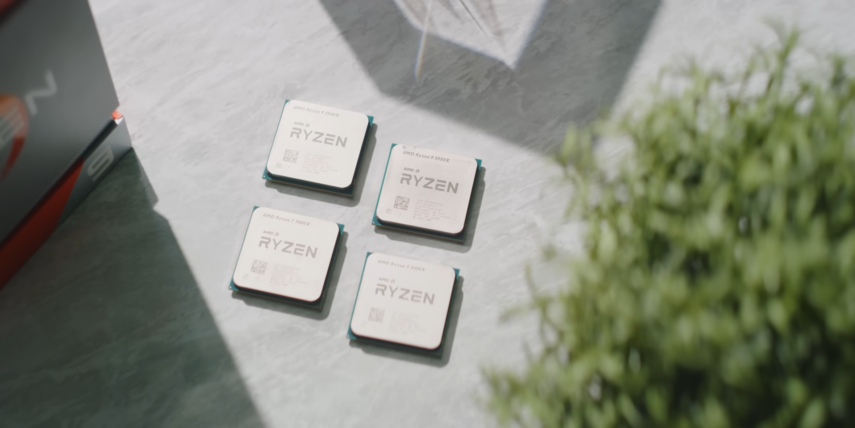
When it comes to buying a motherboard for your Ryzen 9-5900X, you need to consider the size of the motherboard. There are two main sizes of motherboards: ATX and MicroATX. ATX is the larger of the two sizes, and it will support more features and expansion options. MicroATX is the smaller size, and it’s ideal for builds where space is limited.
When deciding which size motherboard to buy, you need to consider what you’ll be using your PC for. If you’re planning on gaming and using a lot of graphics-intensive applications, then you’ll need a larger board that can accommodate multiple graphics cards. However, if you’re only using your PC for basic tasks like browsing the web and checking email, then a microATX board will be just fine.
Ports
You’ll need to decide what kind of ports and connectors you need on your motherboard. Make sure to check what kind of devices you’ll be connecting to your PC and choose a motherboard with the appropriate ports and connectors.
RAM slots
When you are looking for a new motherboard for your computer, it is important to consider the RAM slots that are available on the board. If you are planning on using a Ryzen 9-5900X processor, then you will need to make sure that the motherboard has at least four RAM slots. This will allow you to install up to 64GB of memory in your system.
If you plan on using a lot of graphics-intensive applications or games, then you may want to consider getting a motherboard with more than four RAM slots. This will give you some extra headroom for future upgrades. Additionally, if you think you might ever want to overclock your processor, then getting a motherboard with more than four RAM slots can give you some extra stability.
Overclocking
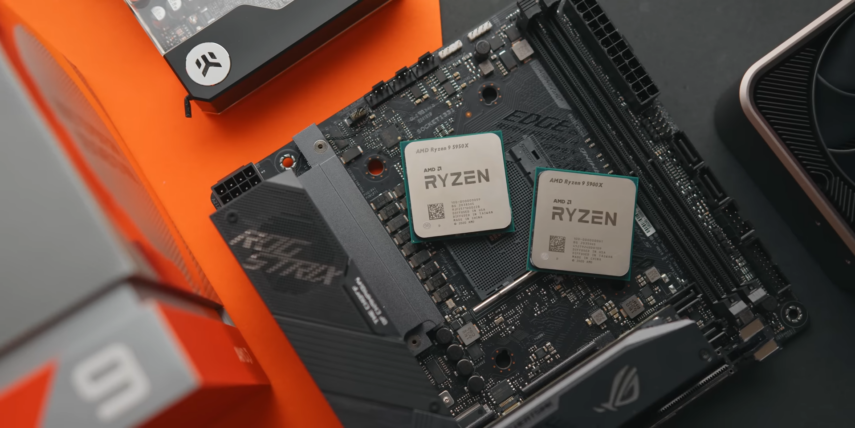
Overclocking is the process of increasing the clock speed of a computer processor beyond its factory default. Doing so can improve the performance of your system, but it also comes with some risks. Before you overclock your Ryzen 9-5900X, consider the following:
- Make sure your cooling is up to the task. Overclocking generates additional heat, so you’ll need a good CPU cooler to keep things running smoothly.
- Check your motherboard’s BIOS for overclocking options and tools. Not all motherboards are created equal when it comes to overclocking features and support.
- Know your limitations. Don’t try to push your hardware too far beyond its capabilities. If you’re not comfortable with tweaking settings, it’s best to leave overclocking to the experts.
- Have a backup plan in case something goes wrong.
Overclocking can sometimes lead to instability or even damage your hardware if done incorrectly. Always have a way to revert back to stock settings in case something goes wrong.
FAQs
1. What CPU cooler do I need for Ryzen 9 5900X?
If you’re looking to get the most out of your Ryzen 9 5900X, you’ll need a quality CPU cooler. But with so many different coolers on the market, it can be tough to know which one is right for you.
When it comes to CPU coolers, there are a few things you’ll want to keep in mind. First, consider the size and shape of your cooler. You’ll want to make sure it will fit inside your case and that it has enough clearance for any other components.
Next, think about the noise level. Some coolers are very quiet, while others can be quite loud. If you’re looking for a quiet cooler, be sure to check the noise level before you buy.
Finally, consider your budget. There are a wide range of prices when it comes to CPU coolers, so be sure to find one that fits within your budget.
2. Does Ryzen 5900X get hot?
Some users have reported that their Ryzen 5 5900X processors get quite hot when gaming or running other demanding tasks. If you are concerned about your processor getting too hot, you can purchase an aftermarket cooler to help keep things cool. You may also want to consider installing additional fans in your case to help keep things cool.
3. What is the fastest Ryzen CPU?
The fastest Ryzen CPU is the Ryzen 7 1800X. It has a base clock speed of 3.6 GHz and a boost clock speed of 4.0 GHz. It has 8 cores and 16 threads, and it supports overclocking.
The Ryzen 7 1800X is the fastest CPU in the Ryzen lineup. It has a base clock speed of 3.6 GHz and a boost clock speed of 4.0 GHz. It has 8 cores and 16 threads, which allows it to handle demanding tasks with ease. The 1800X also supports overclocking, so you can push it even further if you need to.
Conclusion:
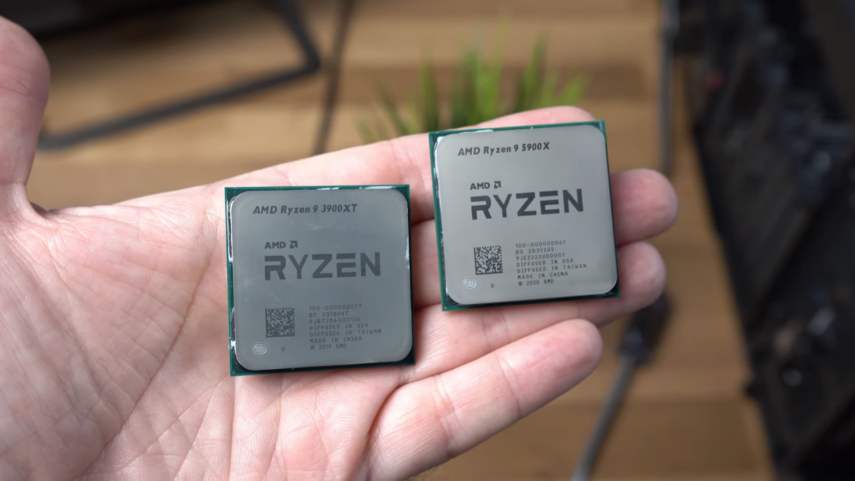
AMD continues to put its money where its mouth is by consistently delivering astonishing performance at a reasonable price, even with its slim margins for Zen 3. They’ve had Intel on the ropes for some time, and if Intel isn’t able to conjure minimum tech magic, they can be taken down before they have a chance to fight back!
That may not be entirely true, as this massive cat and mouse game has been going on for decades, but potentially we’re still at least a couple of years before Intel can be considered truly competitive with AMD again. We hope Intel wasn’t finished in a 14-year chase like AMD just ended!
• Best entry-level: Asus TUF Gaming X570-Plus (Wi-Fi) – Asus’s tried and true TUF Gaming series continues to offer a stellar price-performance value, under $200, even for top-tier Ryzen CPUs.
• Best Overall: MSI MEG X570 Unify – MSI took it out of the park with the X570 Unify and at the same time showed that they are committed to their users and the overall quality of their products. If you’re in the price range, the X570 Unify is arguably the sleekest and most attractive X570 motherboard to date.
• Best high performance: Gigabyte X570 Aorus Xtreme: pure and undeniable performance… For a price. At $700, the Gigabyte is asking a lot, but the Aorus Xtreme really does offer best-in-class VRM performance, extensive connectivity, and build quality. However, if you are almost choked on the idea of spending $700 on a motherboard, the Asus ROG Crosshair VIII Hero (Wi-Fi) is the best reasonable X570 for enthusiasts at almost half the price; $380.
• Best mATX: Asus TUF Gaming B550M-Plus (Wi-Fi) – Asus offers one of the best mATX AM4 motherboards to date, with equivalent VRM performance compared to its direct competition, but with USB I / O connectivity upper rear.
• Best Mini-ITX: Asus ROG STRIX X570-I Gaming: Despite a solid lineup of high-end mini-ITX AM4 motherboards for the X570 and B550, the X570-I Gaming is still the best. Especially for a high-end Ryzen 9, Asus is the king of the SFF scene.
Related Posts:
- 15 Best Motherboard For Ryzen 5-3600 2024 - Budget,…
- 10 Best Motherboard For Ryzen 5 2400g 2024 - for…
- Top 10 Best Motherboard For Ryzen 7 3800x 2024 -…
- How Is Insurance Updating Itself by Embracing New…
- 10 Best Motherboard For Ryzen 3-3200G 2024 - High…
- 10 Best Motherboard For Ryzen 9-5950X 2024 - For Top…







